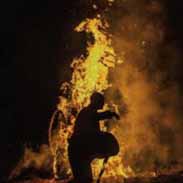Chapter 15 GoPo Stedman
Unlock all answers in this set
Unlock answersquestion
The requirement that plaintiffs have a serious interest in a case; depending on whether they have sustained a direct injury. Link to: writ of certiorari; "rule of four."
answer
Standing
question
The jurisdiction of the courts that hear a case first, usually in a trial. These are the courts that determine the facts about a case. Link to: Fifth Amendment; due process.
answer
Original jurisdiction
question
The jurisdiction of courts that hear cases brought to them on appeal from lower courts. These courts do not review the factual record, only the legal issues involved.
answer
Appellate jurisdiction
question
The 94 federal courts of original jurisdiction. They are the only federal courts in which trials are held and in which juries may be impaneled. Link to: Sixth Amendment.
answer
District courts
question
Appellate courts empowered to review all final decisions of district courts, except in rare cases. In addition, they also hear appeals to orders of many federal regulatory agencies.
answer
Courts of Appeal
question
The "highest court in the land," ensuring uniformity in interpreting national laws, resolving conflicts among states, and maintaining national supremacy in law. The Supreme Court has the power to set "precedent," that is, to make decisions that carry the force of law for future generations. Link to: the long and nasty list of Supreme Court cases that you will memorize for the rest of your miserable lives.
answer
Supreme Court
question
An unwritten tradition whereby nominations for state-level federal judicial posts are not confirmed if they are opposed by a senator from the state in which the nominee will serve.
answer
Senatorial courtesy
question
A presidential appointee in the Department of Justice responsible for choosing and arguing cases before the Supreme Court on behalf of the U.S. government.
answer
Solicitor General
question
A statement of legal reasoning behind a judicial decision; the content of which may be as important as the decision itself (majority, concurring, dissenting).
answer
Opinion
question
How similar cases have been decided in the past. Link to: stare decisis.
answer
Precedent
question
A view that the Constitution should be interpreted according to the original intent of the Framers. This intent is mainly expressed in the convention debate notes as well as the Federalist Papers. Link to: conservative; strict-construction.
answer
Original intent
question
The process of remanding decisions to the lower courts to be enforced, and thereby converted into actual policy. Link to: Brown v. Board of Education (II), 1955.
answer
Judicial implementation
question
A judicial philosophy in which judges play minimal policymaking roles. Link to: original intent; conservative; strict-construction
answer
Judicial restraint
question
A judicial philosophy that advocates bold policy decisions to correct social and political problems. Link to: liberalism; loose-construction; Rehnquist Court
answer
Judicial activism
question
A formal document from the U.S. Supreme Court that calls up a case from the lower courts. Link to: standing.
answer
Writ of certiorari
question
Minimum number of justices that must be in agreement to grant the writ of certiorari.
answer
Rule of Four
question
A term describing the senatorial screening process for all presidential appointees.
answer
Vetting
question
A nickname given to a federal judge's record of judicial rulings. This becomes relevant during the vetting process in the Senate. Link to: Miguel Estrada; filibuster.
answer
"Paper trail:"
question
From the latin for "let the decision stand" this doctrine holds that judicial precedent has the force of law. Strict supporters of this doctrine don't like to see judges "legislate from the bench" and steer away from established precedent. Today, Supreme Court nominees are often asked about their stance regarding this doctrine.
answer
"Doctrine of stare decisis:"
question
Lawsuits permitting a small number of people to sue on behalf of all other people similarly situated.
answer
class action lawsuits
question
Legal briefs submitted by a "friend of the court" for the purpose of raising additional points of view and presenting information not contained in the briefs of the formal parties. These briefs attempt to influence a court's decision.
answer
amicus curiae briefs



